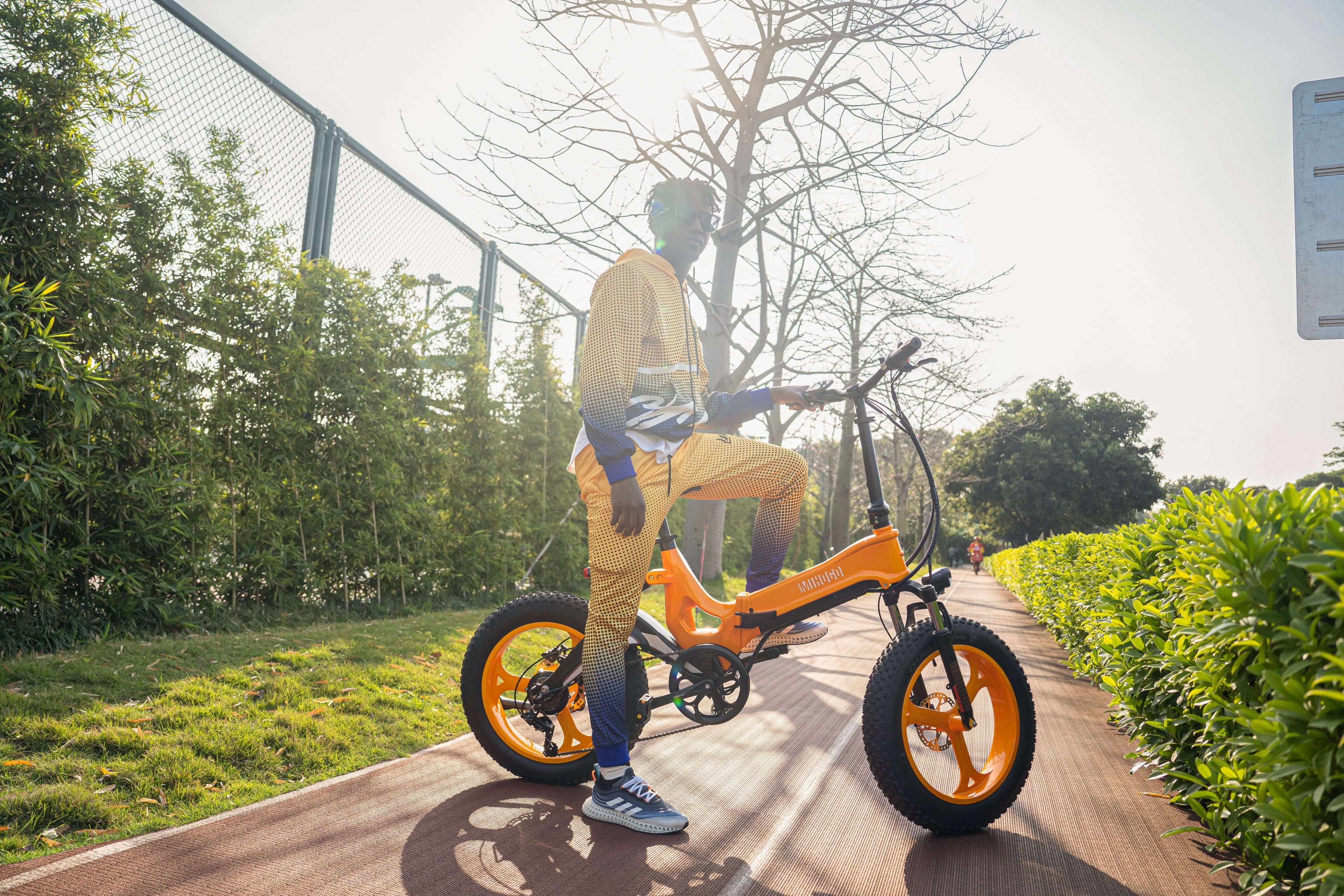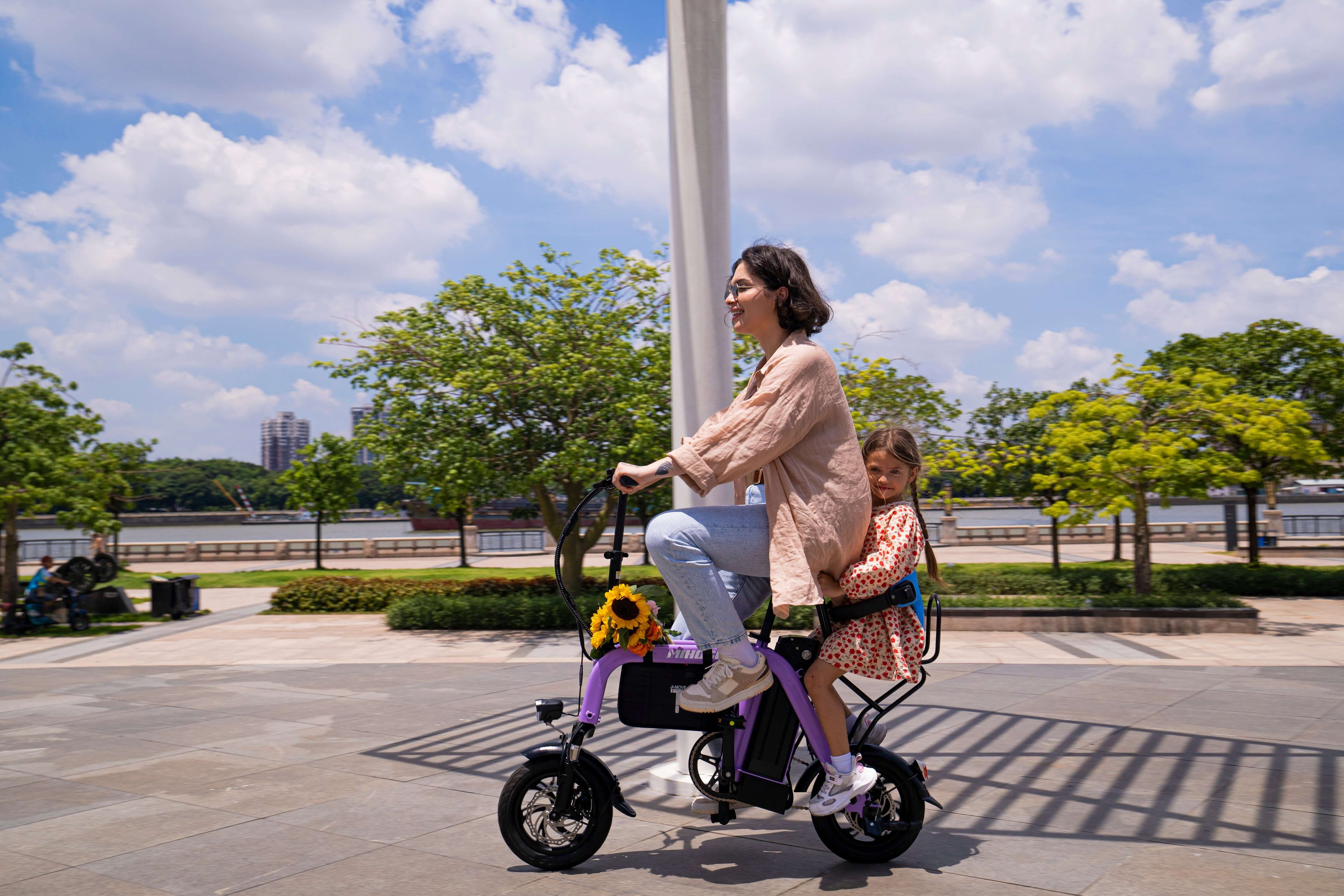Introduction: Why E-bike Display Calibration Matters
Your Mihogo e-bike's display is the command center that controls your entire riding experience. Whether you own the powerful Air750 Max carbon fiber e-bike, the versatile MIHOGO ONE Utility EBIKE, the compact RX 2.4 folding commuter, or the nimble Mihogo Mini, proper display calibration ensures accurate readings, optimal battery performance, and a safer ride.
Display calibration directly impacts speed accuracy, range estimation, and power assistance levels. Without proper calibration, you might experience inaccurate speed readings, reduced battery life, or inconsistent motor assistance - issues that can significantly affect your riding experience and safety.
Understanding Your Mihogo E-bike Display System
Display Types Across Mihogo Models
Each Mihogo e-bike comes equipped with an advanced LCD display system designed for specific performance characteristics:
- Mihogo Air750 Max (750W, 121-mile range): Features a high-resolution display optimized for carbon fiber performance cycling
- MIHOGO ONE Utility EBIKE (750W, 167-mile range): Equipped with a utility-focused display for professional and cargo applications
- MIHOGO RX 2.4 (500W, 40-mile range): Includes a compact folding-bike optimized display for commuter convenience
- Mihogo Mini (350W, 62-mile range): Features a simplified display perfect for urban mobility
Essential Display Functions
Your Mihogo e-bike display monitors and controls:
- Real-time speed and odometer readings
- Battery level and range estimation
- Power assistance levels (PAS 1-5)
- Motor power output and consumption
- Error code diagnostics
- Riding mode selection
Step-by-Step Calibration Guide for Mihogo E-bikes
1. Accessing the Advanced Settings Menu
For most Mihogo displays, access the P-settings menu by:
- Power on your e-bike display
- Press and hold the UP and DOWN buttons simultaneously for 3-5 seconds
- Enter the default passcode (usually 1919 or 8080)
- Navigate through P01-P20 settings using the arrow buttons
2. Critical Calibration Parameters
P03 - Battery Voltage Setting
Set this according to your Mihogo model:
- Air750 Max & ONE Utility: 48V (750W models)
- RX 2.4: 36V or 48V (500W model)
- Mini: 36V (350W model)
P06 - Wheel Size Calibration
This is the most critical setting for accurate speed and distance readings.
For Mihogo Fat Tire Models:
- Measure your actual wheel circumference by marking your tire and rolling it one complete revolution
- Standard settings: 26" = 2070mm, but measure for precision
- Account for tire pressure and rider weight in your measurement
For Standard Tire Models:
- 20" wheels (RX 2.4 folding): approximately 1590mm
- 26" wheels: approximately 2070mm
- Always verify with physical measurement for accuracy
P07 - Speed Sensor Magnet Count
Set according to your motor specifications:
- Most Mihogo models use 1 magnet (default)
- This setting tells the controller how many magnetic pulses to expect per wheel revolution
P08 - Speed Limit Adjustment
Configure based on local regulations and intended use:
- Class 1 & 2: 20 mph maximum
- Class 3: 28 mph maximum (where legally permitted)
- Utility models may require lower speeds for safety
3. Advanced Sensor Calibration
Cadence Sensor Optimization (P11-P13)
- P11: PAS sensitivity (1-24, default 12)
- P12: PAS strength/power delivery
- P13: Sensor type configuration
Torque Sensor Fine-tuning
For models equipped with torque sensors:
- Perform a zero-point calibration while stationary
- Test gradual pedal pressure response
- Adjust sensitivity for natural feel
4. Power Management Calibration
Current Limit Settings (P14)
Optimize power delivery for your specific Mihogo model:
- 750W models (Air750 Max, ONE Utility): 15-18A
- 500W model (RX 2.4): 12-15A
- 350W model (Mini): 10-12A
Battery Low Voltage Cutoff (P15)
Set appropriate cutoff voltages:
- 48V batteries: 40-42V cutoff
- 36V batteries: 31-33V cutoff
Troubleshooting Common Calibration Issues
Inaccurate Speed Readings
Problem: Display shows speeds 2-3 mph faster or slower than actual Solution:
- Recalibrate P06 wheel size using physical measurement
- Check P07 magnet count setting
- Ensure speed sensor is properly aligned
Inconsistent Range Estimates
Problem: Battery percentage drops unexpectedly Solution:
- Perform full battery calibration cycle (0-100% charge)
- Verify P03 voltage setting matches your battery
- Check P14 current limit settings
Motor Power Issues
Problem: Uneven or delayed motor assistance Solution:
- Adjust P11 PAS sensitivity
- Recalibrate torque sensor zero point
- Verify P12 power delivery settings
Error Code Resolution
Common Mihogo error codes and solutions:
- Error 002: Brake sensor malfunction - check brake cable connections
- Error 003: PAS sensor error - clean and realign cadence sensor
- Error 007: Motor error - inspect motor connections and wiring
Maintenance Tips for Long-term Accuracy
Regular Calibration Schedule
- Monthly: Check tire pressure and recalibrate wheel circumference if needed
- Quarterly: Verify all P-settings remain accurate
- Annually: Perform complete sensor recalibration
Environmental Considerations
- Temperature effects: Cold weather can affect battery readings
- Tire wear: Regular tread wear changes wheel circumference
- Load changes: Cargo weight affects range calculations
Software Updates
Keep your Mihogo e-bike display firmware updated:
- Check manufacturer website for firmware updates
- Use official Mihogo service centers for major updates
- Document settings before updates to restore custom configurations
Optimizing Performance for Different Mihogo Models
Air750 Max Carbon Fiber Optimization
Focus on performance metrics:
- Maximize the 121-mile range through efficient PAS calibration
- Optimize power delivery for carbon fiber responsiveness
- Fine-tune display brightness for all lighting conditions
ONE Utility EBIKE Commercial Calibration
Prioritize reliability and load capacity:
- Configure display for maximum 167-mile range efficiency
- Adjust current limits for cargo hauling
- Set conservative power settings for professional use
RX 2.4 Folding Commuter Setup
Optimize for urban commuting:
- Balance 40-mile range with responsive city riding
- Configure folding-specific settings
- Adjust display for quick status checks
Mihogo Mini Urban Configuration
Maximize efficiency in the lightest package:
- Optimize 62-mile range through precise calibration
- Configure display for easy visibility
- Set power limits appropriate for 350W motor
Advanced Calibration Features
Smart Connectivity Integration
Modern e-bike displays increasingly feature smartphone integration:
- GPS tracking for accurate speed verification
- Ride analytics for performance optimization
- Anti-theft systems with remote monitoring
Future-Proofing Your Setup
As e-bike technology evolves, consider:
- Firmware update compatibility
- Sensor upgrade pathways
- Smart feature expansion
Safety Considerations During Calibration
Pre-Calibration Safety Checks
- Ensure bike is powered off during hardware adjustments
- Check all cable connections are secure
- Verify brake function after any sensor adjustments
Test Ride Protocol
After calibration:
- Start with low-speed testing in safe area
- Gradually test all assistance levels
- Verify emergency brake and power cutoff functions
- Confirm display readings match actual performance
Conclusion: Maximize Your Mihogo E-bike Experience
Proper display and sensor calibration transforms your Mihogo e-bike from basic transportation into a precision instrument tailored to your riding style. Whether you're maximizing the Air750 Max's carbon fiber performance, utilizing the ONE Utility's professional capabilities, enjoying the RX 2.4's urban convenience, or optimizing the Mini's city efficiency, accurate calibration ensures optimal performance, safety, and riding satisfaction.
Remember that calibration is an ongoing process, not a one-time setup. Regular maintenance and adjustment keep your Mihogo e-bike performing at its peak while ensuring accurate data for safe, efficient rides. When in doubt, consult with authorized Mihogo service centers for professional calibration assistance.
Take control of your e-bike's performance today by implementing these calibration techniques, and experience the full potential of your Mihogo electric bike.
Related Resources
- E-bike Display Settings Complete Guide - Comprehensive LCD configuration reference
- Electric Bike Safety Standards - Understanding legal requirements and safety regulations
- E-bike Battery Technology Innovations - Latest advances in battery and motor technology
[E-bike Maintenance Guide] - Essential upkeep for optimal performance
[Battery Care Best Practices] - Extend your Mihogo battery life
[Motor Performance Optimization] - Get the most from your Mihogo motor system








